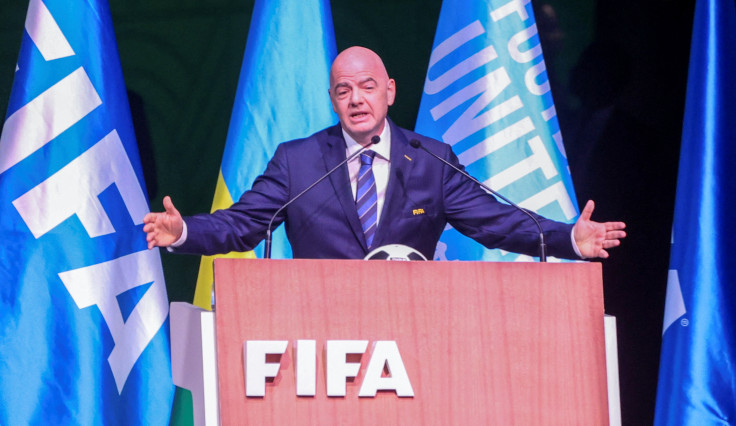Women's World Cup in danger of not being televised in the UK
FIFA president Gianni Infantino has called on Europe's big nations, including Britain, to increase broadcasting offers for this summer's Women's World Cup.

This summer's FIFA Women's World Cup in Australia and New Zealand is at risk of not being televised across Europe. Britain, Germany, France, Spain and Italy are the countries who have not yet agreed on a fair price for the broadcasting rights of the tournament, which begins on July 20th and concludes on August 20th.
The failure to agree on a price for the tournament broadcasting rights is due to the current FIFA President, Gianni Infantino, being displeased with the low offers from major European nations. In Geneva, at a World Trade Organization meeting, Infantino stated: "The offers from broadcasters, mainly in the 'Big 5' European countries are still very disappointing and simply not acceptable."
Infantino further added that "public broadcasters in particular have a duty to promote and invest in women's sport." He alluded to how the broadcasting money would enhance women's football, clarifying, "100 per cent of any rights fees paid would go straight into women's football, in our move to promote actions towards equal conditions and pay."
The FIFA president touched on the unfortunate reality of how men's football is valued in comparison to women's football, by highlighting the difference between what broadcasters offered for the men's World Cup compared to the women's. He said: "Whereas broadcasters pay USD 100-200 million for the men's FIFA World Cup, they offer only USD 1-10 million for the FIFA Women's World Cup. This is a slap in the face of all the great FIFA Women's World Cup players and indeed of all women worldwide."
Infantino warned the broadcasters from the big European countries that if they did not improve their offers, rights to the Women's World Cup would not be granted. He expressed: "It is our moral and legal obligation not to undersell the FIFA Women's World Cup. Therefore, should the offers continue not to be fair (towards women and women's football), we will be forced not to broadcast the FIFA Women's World Cup into the 'Big 5' European countries."
The FIFA president would like for women's football to be viewed as deserving of a greater price when it comes to broadcasting rights, due to the incredible rise it has witnessed in recent years. Women's sports competitions have grown to where the coverage across major sporting outlets is nearly just as much as men's football whilst sponsorships have also risen.
In England, football has reached new heights for women, with the England Lionesses' victory at last year's European Championships on home soil paving the way for future generations to be inspired by and replicate. The final, which saw England defeat Germany 2-1 in extra-time in front of over 87,000 at Wembley Stadium, drew in 365 million viewers worldwide, displaying the global audience which women's football now has.
Also, in Britain, televised live on BBC One, the game managed to attract a peak viewing audience of 17.4 million. Meanwhile, just under six million streamed the game through BBC iPlayer and the BBC Sport app and website. This made the final the highest-viewed women's football match in British television history and demonstrated that audiences have a strong interest and passion for watching women's football in this country.
British Prime Minister, Rishi Sunak, highlighted that this recent success means televising the World Cup this summer is crucial. His official spokesman stated: "I think the Prime Minister, like everyone in the UK, would want to see such an important event televised, not least following the huge success of our Lionesses."
There is more at stake in the women's game as the prize money for the 2023 Women's World Cup is set to have a 300 per cent increase from the last World Cup, with the tournament winners set to rake in just over £120 million. The figure is also 10 times larger than what the victors' prize money was at the 2015 tournament.
Evidently, women's football has reached new heights and many believe television broadcasters have to reflect that in their price offerings for the rights of women's matches. If they want to reap the rewards of televising women's sports matches, which is gaining more traction, naturally, more money will have to be spent to have the licenses – which in return can be reinvested into women's sports.
It would be a massive shame for fans of women's football in this country if they were unable to watch this upcoming World Cup. This is as it would threaten to tear down the growth which has been gradually built up in the women's game over many years.
© Copyright IBTimes 2025. All rights reserved.






















